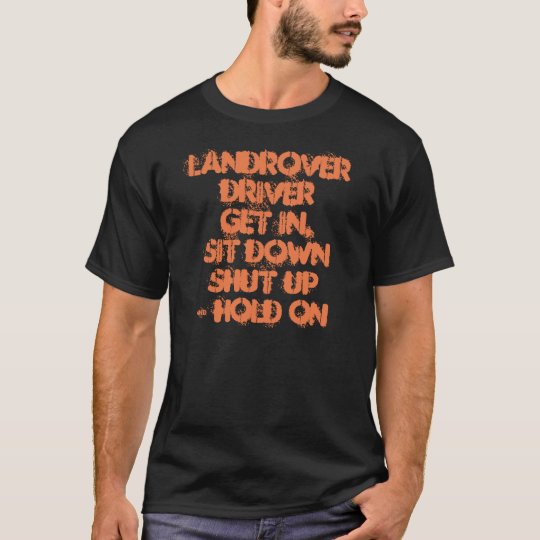Advice on becoming an off-road driving instructor
Discussion
I have an interview and assessment in a couple of weeks time to become an off-road driving instructor. Part of the assessment will require me to demo my off-road driving skills.
Whilst I do have some they are mainly self taught and based on farm use experience. I wondered if there are any top tips, common phraseology, standard terms etc etc that it would be beneficial for me to be aware of? Any good online resources?
Thanks in advance
Whilst I do have some they are mainly self taught and based on farm use experience. I wondered if there are any top tips, common phraseology, standard terms etc etc that it would be beneficial for me to be aware of? Any good online resources?
Thanks in advance
Honeywell said:
I have an interview and assessment in a couple of weeks time to become an off-road driving instructor. Part of the assessment will require me to demo my off-road driving skills.
Whilst I do have some they are mainly self taught and based on farm use experience. I wondered if there are any top tips, common phraseology, standard terms etc etc that it would be beneficial for me to be aware of? Any good online resources?
Thanks in advance
The ones I remember when I learnt were something along the lines of ....Whilst I do have some they are mainly self taught and based on farm use experience. I wondered if there are any top tips, common phraseology, standard terms etc etc that it would be beneficial for me to be aware of? Any good online resources?
Thanks in advance
'If in doubt - get out' - (If unsure as to the consistency of the terrain, depth of that river, etc. - stop the vehicle and get out to check it on foot.)
'As slow as possible - as fast as necessary' - (Tackle most obstables on the level at walking/sedate pace - for climbs or slopes you may need more speed obviously. Keeping the velocities low gives you a) more time to react and b) makes it less expensive if you clop it.)
Other than that, they'd want to see a methodical driving style with a clear rationale behind it.
For example: If you use a specific gear for an element of the terrain (e.g. low-second for a descent) - it might be worth just commenting to the examiner what you're doing and why. In this case, you are using low-second/third to slow your descent using engine braking, using a higher gear rather than low-first lowers the risk of the wheels un-sticking / losing traction. Other times you might stick to low-first on the same slope in different conditions - explain why.
At the end of the day - they're interested in you being able to go off-road safely and also being able to explain it logically to someone else (e.g a student). The first bit is hard enough - trying to get someone else to get their head round it is probably not that much easier either....
As for resources, youtube is a handy visual guide. Anything under the search terms 'Off Road Driving Techniques, etc.' Probably all stuff you know already and do without thinking - but it explains why and gives you terms and phrases that might come in useful.
https://www.youtube.com/watch?v=OaC7S3Af7LQ - ignore the British Pathe voice-over and old-school Series Landy - the principles are the same.
Edited by LandRoverManiac on Sunday 14th May 08:52
LandRoverManiac's advice seems good
I would say that the ability to express what you're doing and why is the primary thing. That you know how to drive off-road should almost be a given really.
Perhaps worth (where appropriate) explaining the technique you would alternatively use in a different vehicle. For instance, I would apply a different approach in a lot of scenarios if I were in my Panda rather than my Landie.
Also try and get a feel for what their opinions are, if there are things that they disagree with you on as far as the correct technique goes, do you want to toe the line on that or have the discussion with them?
Maybe find an opportunity to discuss the "lies to children" principle, the idea that you will teach people who know nothing somethign that isn't quite true, but functionally effective for them, as they do not have the background knowledge to handle the full detail version, it usually being a bit of a feedback loop regardign the current situation than a hard and fast rule.
I would say that the ability to express what you're doing and why is the primary thing. That you know how to drive off-road should almost be a given really.
Perhaps worth (where appropriate) explaining the technique you would alternatively use in a different vehicle. For instance, I would apply a different approach in a lot of scenarios if I were in my Panda rather than my Landie.
Also try and get a feel for what their opinions are, if there are things that they disagree with you on as far as the correct technique goes, do you want to toe the line on that or have the discussion with them?
Maybe find an opportunity to discuss the "lies to children" principle, the idea that you will teach people who know nothing somethign that isn't quite true, but functionally effective for them, as they do not have the background knowledge to handle the full detail version, it usually being a bit of a feedback loop regardign the current situation than a hard and fast rule.
Gassing Station | Off Road | Top of Page | What's New | My Stuff




